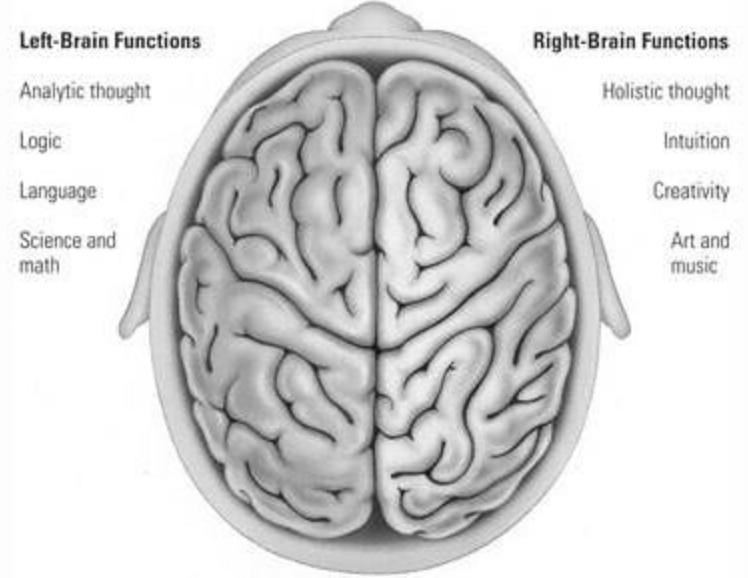Malva: Neruda’s forgotten daughter, and the moral sacrifices behind male greatness
Content warning: mentions of rape and sexual abuse.
Malva Marina Trinidad del Carmen Reyes. That is not a name I recognized a month ago. And if you do know who she was without googling, I applaud you. Because history did its best to erase her. Or rather, her father did. Him, you have surely heard of — the distinguished poet, Nobel Prize winner: Pablo Neruda.
What brought Malva Marina Reyes’ name, and life story, to my attention, was Hagar Peeters’ novel, Malva. In her delightful short book, Peeters tells the story of a neglected little girl, born to Neruda’s first (and also forgotten) wife, Maryka Hagenaar. Before he left the Dutch brunette for his second wife -whom he would also eventually change for a newer model- they had a child together: Malva Marina. The girl suffered from hydrocephalus, which made her, according to her ever eloquent father, “a perfectly ridiculous being, a kind of semicolon, a three-kilo vampire.”
Once one learns about the way Neruda treated the oppressed people he actually knew, his poems on the suffering of the least fortunate seem somewhat less inspiring. His verses about the “thirst” and “boundless desire” that provoke on him the female body, sound less romantic after reading the description of his rape of a Sri Lankan maid. His passionate odes to motherhood seem laughable when one learns that he abandoned his own sick daughter. Not only that, but he also left her mother at the mercy of the Nazis. During the occupation of Holland, he refused to use his diplomatic status to get her out of Europe safely.
How’s that for the “greatest poet of the 20th century”?
This tendency to overlook prosperous men’s so-called “flaws” does not uniquely harm women. It must be stated that other marginalized identities are also affected by this. People of color have been historically left behind, in the progress of their white counterparts, and trans voices continue to be silenced at an alarming rate. I focus on the discussion around gender because, as a cisgender light-skinned woman, this is my story to tell.
Since childhood, I was told that behind every great man, there is a greater woman. I learned that my role as a female is that of a supporter. That I should happily stand behind the men I love, cheering on them passionately. I had always perceived that expectation as a condescending way the Patriarchy had to keep women at bay.
But in reading Malva’s story, I began to doubt that perception. What if, instead of choosing to stand still as we proudly watch men advance, women have purposely been left behind? What if the great man is actively running away from the greater women that granted him triumph? What if, in his climb of the ladder to success, he is stepping on top of them?
The aftermath of #MeToo has led our culture to reckon just how often the achievements of “great” men arrive at the expense of others: women, children, disabled people, etc. However, accepting the problem is only the first step in a seemingly endless process of reparations and change. What matters is how much more of it are we willing to take, and how can we start to change our stories, and with them, our reality.
In order to start transforming the narratives, we initially need to acknowledge the victims and concede them the importance they have been previously denied. Marie-Thérèse Walter, Marianne Weber, Zelda Fitzgerald, Alice Coltrane, and countless others have been relegated to the role of “wife of a Talented Man.” Their own works, skills, or potentialities never perceived as valuable as those of their spouses. Systematically these women’s lives have been reduced to a footnote in their husbands’ biographies.
The children, on the other hand, have demoted to mere punctuation marks. Malva Marina Reyes is not the only “semicolon” buried in the past of an extraordinary writer. Peeters’ book also mentions Lucia Joyce and Daniel Miller in the ever-growing list of kids omitted from history so that their brilliant fathers could share their gift with the world.
Usually, the trail of corpses prominent men leave behind them is perceived in one of two ways. Either as a natural consequence of their genius, or a sacrifice worth making in the name of said prodigy. The whole issue reeks of a problem Hannah Gadsby warned us about in her groundbreaking Netflix special of last year, Nanette. That is, our inability to recognize and encourage latent skills in women, children, and “others” at the same rate we do so in men, particularly cisgender straight white men.
For some reason, western society remains keen on the idea that a promising man has more potential than a promising woman. Even in our “progressive,” Frida-Kahlo obsessed times, women are still highly underrepresented in the art world. And it is worth questioning, why do we keep doing this? Why do we continue to allow men to hurt others less privileged than them, only because they are good at something? Hagar Peeters’ hypothesis for our prioritizing of talented men before everyone else, is Bernard Williams’ theory of Moral luck, which is briefly mentioned in her book.
According to Peeters, Moral luck is a type of fate granted to “famous and successful men who abandon their children. They are not judged, on the condition that with the freedom they’ve conquered, they make immortal works of art for all of humanity.” In other words, Neruda’s abandonment of Malva can be forgiven because he won a Nobel Prize. He gave us the Twenty Love Poems and a Song of Despair, he made immortal works of art, he fulfilled his poetic purpose. And so, the argument goes, whatever happened to his hydrocephalic child, is irrelevant.
In the 1981 edition of his Moral Luck, philosopher Bernard Williams argues that an artist who puts his career before everything else, does so in total ignorance of the consequences of that decision. It is a completely arbitrary bet. He hopes to succeed, but he doesn’t know whether or not he will, and still chooses to sacrifice everything else. In that sense, Williams argues, “the only thing that will justify his choice will be success itself.” The privileges we give a man, and the hurt we receive in return (the “moral cost” of his actions), can be defended if, and only if, he succeeds.
When we grant an artist the benefit of Moral luck, we are allowing him to sacrifice the people in his life, in the name of his art. He is given permission to discriminate, cheat, abandon, and even rape and murder, so long as that moral cost is “honored” by his achievements. As long as he succeeds as an artist, the pain he inflicts on others is justified. If, on the contrary, his artistic pursuits fail, then he has failed. In that case, the moral cost is not justified, the sacrifice was in vain: others suffered for nothing.
The idea of a ‘moral cost’ embedded into every decision is problematic in that it allows for the justification of deliberately inflicted suffering. Ultimately, it could serve as a means of justifying oppression. If a project is successful, then the “sacrifices” made to achieve it, are worth it.
According to Williams, outside spectators’ awareness of the moral cost behind the achievements of an artist, does not necessarily leads to a complete disapproval of their art. One could, allegedly, support the outcome (the success of an artist) and even their choice to produce that outcome (to become successful at any cost), while conscious of the hurt that decision brought to others. Put differently, we could recognize Picasso’s horrific treatment his ‘muses’ and still think Guernica a masterpiece.
This appreciation of art, and the implied attempt to separate it from the very awful men that create it, also implies an ethical compromise. The “admiration or liking or even enjoyment of the happy manifestations of [moral] luck,” suggests Williams in his essay, is a “treachery to moral worth.” This means that, for this philosopher, the real question lies in the ethical prospect of cultural consumption. More specifically: is it morally justifiable to enjoy art made by awful people, at the expense of others?
For Williams, the issue is to be solved on a personal level. “The moral spectator has to consider the fact that he has reason to be glad that [the artist] succeeded, and hence that he tried — or if a particular spectator finds that he has no disposition to be grateful for [the artist]’s paintings, or for paintings, then there will be some other case”. In other words: if you think Canto General, or Les Demoiselles d’Avignon, or Annie Hall, are astounding “immortal works of art,” then you “have reason to be glad” they exist. If so, then you also “have reason to be glad” for the moral cost that made them possible. That is, you are glad for what was done to Malva, Maryka, Delia, Marie-Thérèse, Soon-Yi, Dylan, and many more whose names we sadly don’t remember.
In our collective overlook of men’s abuse of their handed liberties, we are repeating the same story we are supposedly tired of. We continue to reinforce that “we don’t give a shit about women or children” narrative that brought us here in the first place. The fact that we keep neglecting to listen to women, and to believe their stories, is proof that the #MeToo movement hasn’t actually changed much. And that is something we need to reckon with. Ultimately, our willingness to ignore the moral cost behind the “greatness” of male artists says more about our collective moral compass than it does about their individual ones.
In this capitalistic world, the decision to change the narratives is up to us, the art consumers. As long as we don’t consciously make that choice, we are still supporting the moral costs that were made to achieve the art we consume. And until we make that decision, we are obligated to question ourselves. Is really Neruda’s poetry that beautiful, that it justifies his mistreatment of almost every woman who ever crossed paths with him? Is Picasso’s cubism really that revolutionary, that we can overlook his involvement with an underage girl? Are Woody Allen’s movies really that good, that we can excuse his pedophilic behavior?
“Our mistake,” as told us Hannah Gadsby in her anti-Picasso rant, “was to invalidate the perspective of a 17-year-old girl because we believed her potential was never going to equal his.” Our eternal mistake in dealing with the legacy of problematic artists lies in our stubborn refusal to grant marginalized folks the same Moral luck prerogatives we give men.
According to Williams’ theory of Moral Luck, one cannot know the consequences of a decision before making it. In the same manner, we will never know the potentialities we are missing if we continue to ignore them. We need to consciously and collectively, make a choice to amplify other voices, to vary our narratives, to uplift traditionally oppressed communities. Until we stop the systematic silencing of women, children, LGBTQ+ folks, people of color, disabled people, etc., we won’t discover the stories, the works of art, the endless possibilities, that we are missing on.









